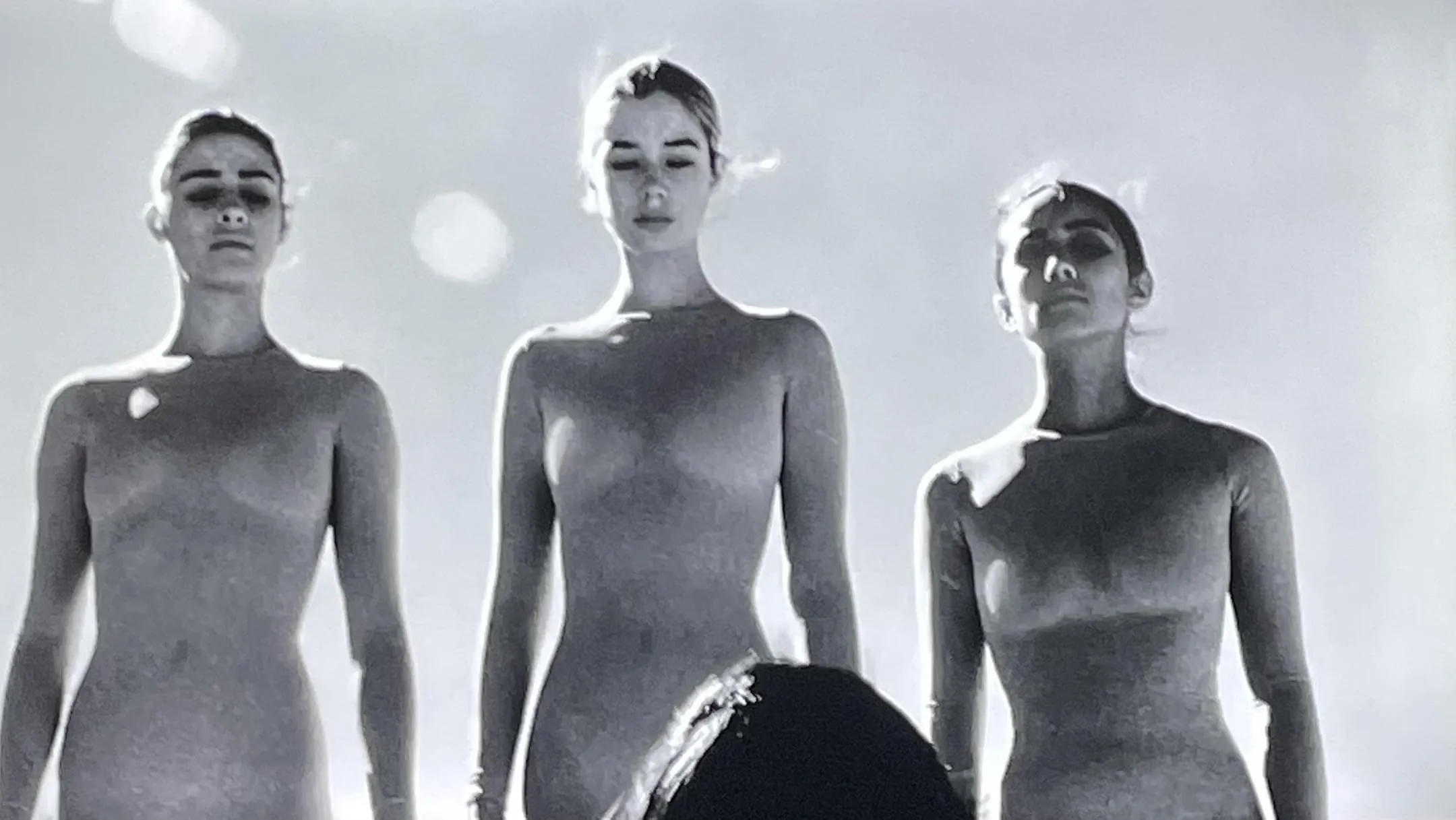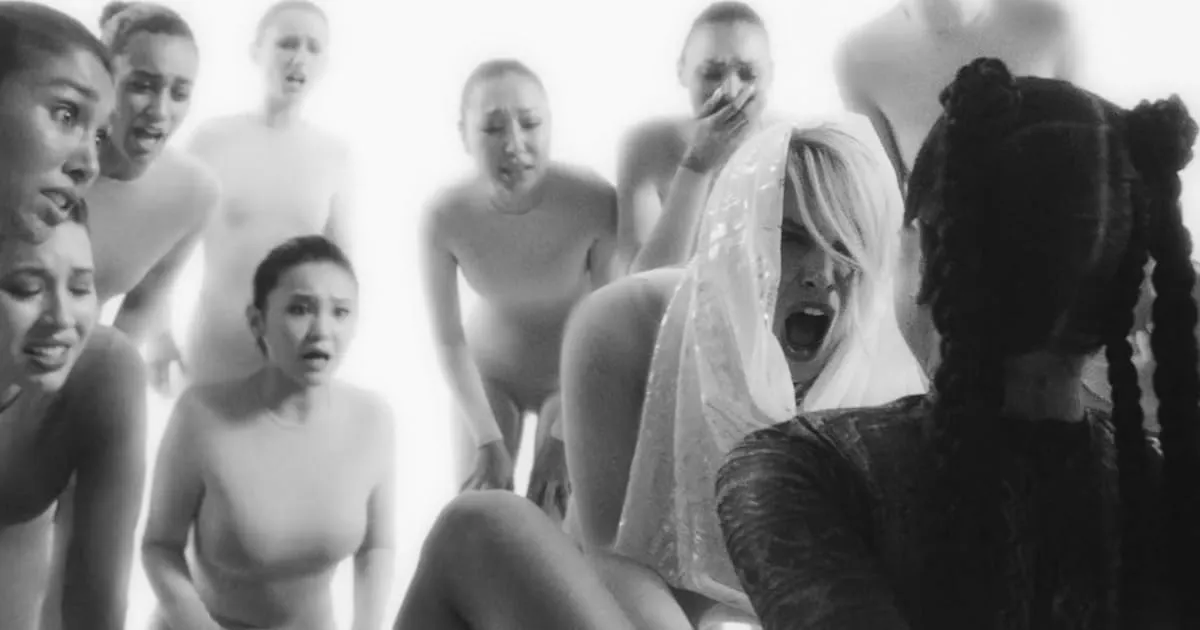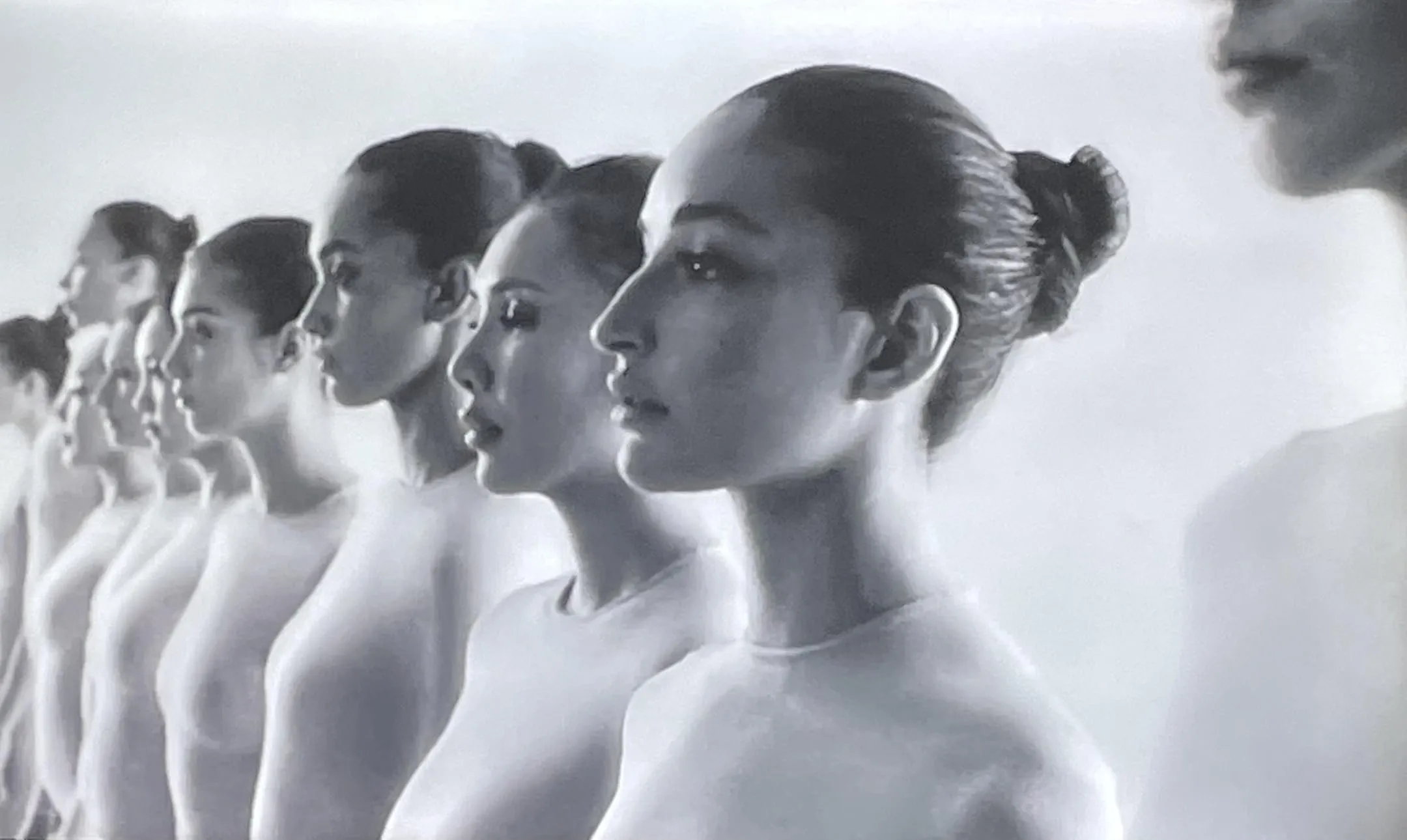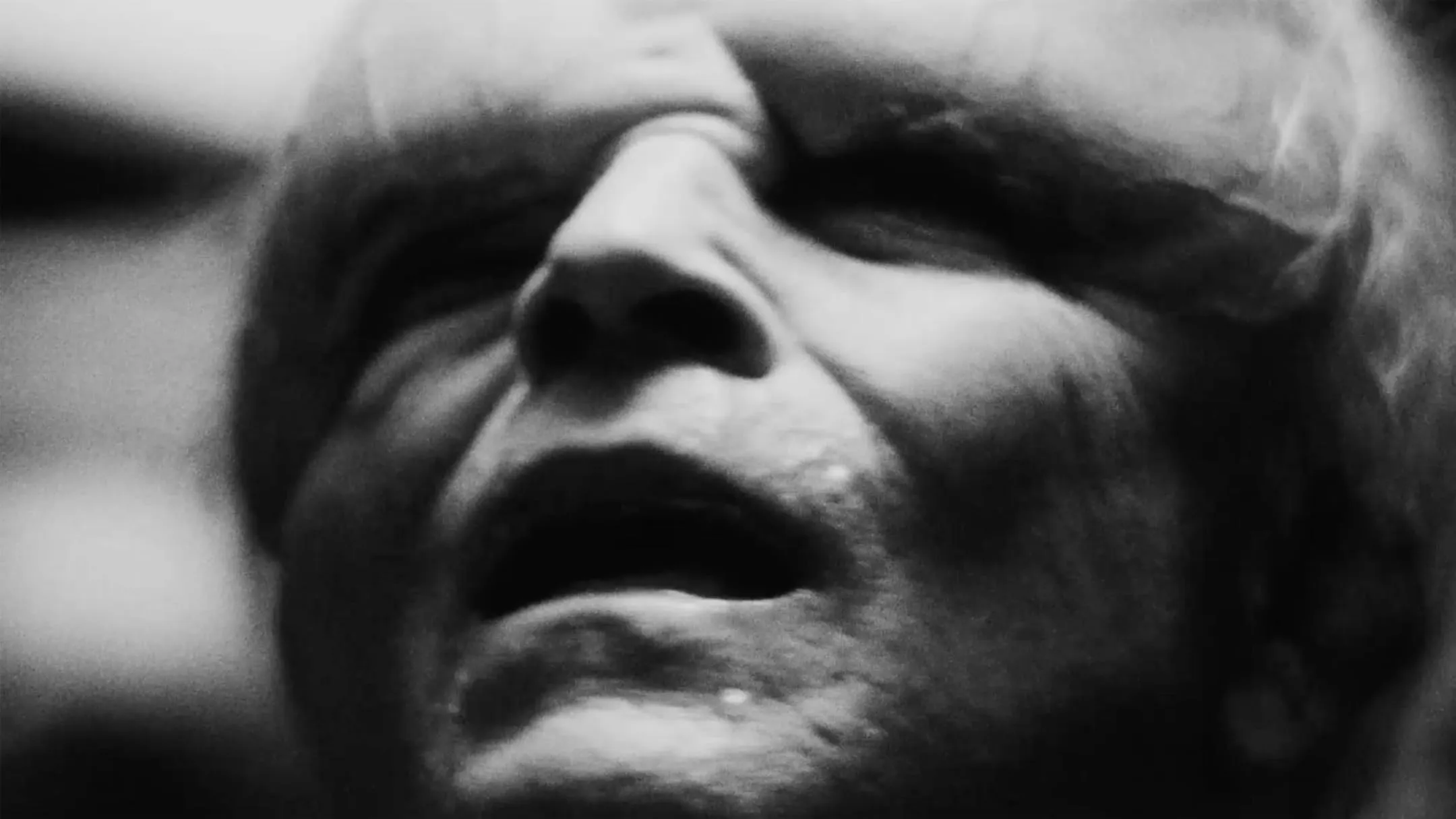Eddie Alcazar’s Divinity tells a strangely unsettling story about humanity’s relationship with science and our innate fear of mortality. The film takes place in a somewhat distant future where an inventor named Jaxxon Pierce has developed a serum called Divinity that claims to offer immortality by halting the physical aging process. However, this miracle drug comes with a major caveat: it renders all who take it permanently sterile. As a result, over time humans have lost their ability to reproduce even as they’ve gained the promise of never-ending life.
We’re introduced to Jaxxon, played compellingly by Stephen Dorff, as he operates a booming commercial enterprise selling Divinity to anyone eager to escape death. But it becomes clear he cares more for profits and pleasure than any ethical considerations.
We also learn his father first created Divinity with loftier goals of using science to help humanity before his research was commercialized after his death. Into this strange new world come two mysterious brothers from the stars who disrupt Jaxxon’s operation and force him to confront how his actions have impacted society.
Through its surreal imagery and unpredictable plot, Divinity sparks thought-provoking reflections on our relationship with new technologies and what it means to be human. It’s a one-of-a-kind cinematic experience that will challenge preconceptions and stay with you long after the end credits roll. While not an easy narrative to follow, Divinity more than compensates with its daring vision and visual innovations, which feel ahead of their time. For those open to diving into uncharted creative waters, this sci-fi oddity offers a truly unique watch.
Immortality, Identity and Dystopia in Divinity
Eddie Alcazar’s Divinity tells a surreal sci-fi tale that examines what it means to be human. The film is set in a not-so-distant future where scientific advances have changed society in strange ways.
At the center of this world is Jaxxon Pierce, played compellingly by Stephen Dorff. As the son of the scientist who invented the immortality serum known as Divinity, Jaxxon has turned its production into a hugely profitable commercial venture. But in prioritizing profits over ethics, he has helped warp humanity’s relationship with science and their own mortality.
We learn Divinity halts the aging process but leaves minds to deteriorate, forcing people to chase youth physically while struggling spiritually. It’s also rendered the population infertile, threatening human existence. This dystopian society glorifies an obsession with perfect physiques and relentless consumption. But cracks are forming in Jaxxon’s empire.
Two mysterious brothers, played by Moises Arias and Jason Genao, arrive from parts unknown with supernatural abilities. They break into Jaxxon’s compound and take him captive, outraged by the turmoil Divinity has unleashed. Their motivations remain cryptic, but they force Jaxxon to confront how his actions have impacted the world.
Into this drama comes Nikita, a seductress played by Karrueche Tran. Hired to visit Jaxxon’s home, she becomes drawn into the brothers’ complex mission. Led by the enigmatic Ziva of Bella Thorne, another group watches from afar, hoping to find women who can restore humanity’s ability to reproduce.
Through its surreal tale, Alcazar’s film examines timely questions around science, mortality, and what it means to be human in a technologically advanced age. While the narrative can be oblique, fans of thought-provoking sci-fi will find much to ponder in Divinity’s daring vision of the future.
Making Sense of Divinity’s Strange yet Striking Vision
This film really pulls you into its murky world like nothing else. Right from the start, you realize this won’t be your typical moviegoing experience. Shot entirely in black and white, it has a stark, unsettling look that puts you on edge.
Everything feels just slightly off—from the eccentric costumes and retro furnishings in Jaxxon’s home to the disorienting imagery that warps what you think you see. Shadows cloak the characters in mystery while the rocky desert landscapes stretch as far as the eye can travel under the moonlight.
Coupled with the unorthodox editing and jarring soundtrack, Divinity creates an experience that constantly shifts beneath your feet. One moment plays like a surreal horror, the next like a fever dream you can’t wake from. It’s easy to get lost in its hallucinatory twists and turns.
Yet for all the psychedelic weirdness, Alcazar’s vision is never less than compelling. His team fills each black and white frame with inventive details that demand your attention, whether it’s the intricate prosthetics transforming Dorff’s character or the androgynous figures glowing ghostlike in their realm.
Even scenes of violence inhabit their own hypnotic energy, a stop-motion brawl cracking with the frenzied drive of a Salvador Dal<0xC3><0xAD> painting brought to life. You may not sleep easily after, but the nightmares will linger in a way that lingers with you.
So while the plot eludes normal understanding, Divinity’s striking visuals immerse you in its disquieting atmosphere. It welcomes you into a nightworld on its own unnerving terms, keeping you anchored in the experience through the sheer force of its distinguished style. For fans of experimental cinema, it offers a trip unlike any other.
Questions of Mortality in Divinity’s Surreal World
This strange film presents some intriguing themes around what it means to be human. One of its central ideas revolves around immortality—specifically, humanity’s eternal quest to overcome death.
In Divinity’s world, a drug called “Divinity” has been developed that supposedly grants everlasting youth. Yet this pursuit of immortality comes at a cost, rendering people infertile. The movie seems to suggest there’s an essential balance being disrupted. While our instinct to survive is understandable, prolonging life indefinitely removes our ability to pass existence onto new generations.
Similarly, the film shows how the promise of everlasting perfection has warped society. People focus solely on maximizing physical form, to the exclusion of other qualities. Commodification of the body and pleasures of the flesh become the norm. But underneath the aesthetic appeal lies a loss of deeper meaning.
Religious symbolism further hints that man should not play God. When the alien brothers arrive, their powers evoke Old Testament stories of judgment. Their transformation of Jaxxon likewise mirrors biblical warnings against lusts of the flesh. Even Ziva and her followers live like ascetics, guarding their ability to bring new life into the world.
So Divinity uses its surreal elements to explore timeless questions. What does it mean to transcend death, and at what cost? Can society prioritize surface appearance over inner virtue? In a world where science stretches its grasp, might there be truths beyond what we comprehend? The movie leaves these concerns provocatively open-ended, much like its nonlinear narrative. Even if answers remain elusive, the ideas stick with viewers long after the end.
Guiding Visions
This film wouldn’t work without its fearless cast and crew fully committing to the surreal experience. Right at the top is Stephen Dorff, completely throwing himself into Jaxxon’s unraveling. As his character transforms physically and mentally, Dorff brings unexpected layers of humanity even in Jaxxon’s most monstrous moments.
You really believe his inner turmoil. Moises Arias too brings charm and complexity to his alien brother. There’s an empathetic heart under all the strangeness. Together, these actors anchor the story when it ventures into uncharted territories.
No less impressive are the technical players bringing Alcazar’s visions to life. Cinematographer Danny Hiele shoots entirely in haunting black and white, adding texture and noir-ish intrigue wherever the camera wanders. From vertiginous drone shots to claustrophobic close-ups, the scenes immerse you in this unique world. Production designer Paul Rice likewise deserves praise. His futuristic yet retro aesthetic, blending sleek decadence with eerie decay, is always arresting to behold.
But it’s Alcazar’s unique directive flair that really makes this singular experience sing. Juggling heady concepts and wild imagery, he takes bold swings but sutures it all together with a cohesive surrealist sensibility. The story ebbs and flows with its own internal logic, prioritizing impression and feeling over straightforward exposition.
It’s a risk that pays off in spades. You may not understand everything that transpires, but you’ll never be able to look away either. With this film, Alcazar proves himself a daring visionary unafraid to blaze his own path into uncharted sci-fi frontiers. while keeping you enthralled for the unpredictable ride. Guiding it all is an intense passion and irreverent spirit that stays with you long after the end credits.
Ambiguous Insights
Divinity certainly leaves you with plenty to ponder once the end credits roll. At its core, it seems to be grappling with complex questions around humanity’s relationship with science and our obsession with defying mortality.
Jaxxon’s development of an anti-aging drug reflects both the promise and peril of scientific advancement. His father sought to benevolently prolong life, yet Jaxxon capitalizes on vanity with disastrous results. The film hints this superficial application distorts the drug’s intent, awakening some cosmic retaliation. But is its message that we shouldn’t interfere with nature, or merely that profit motives tend to corrupt lofty goals?
On one hand, making everyone infertile removes our ability to pass on knowledge to future generations. But does it also critique assigning reproductive value solely to women? Either way, Alcazar forces us to confront uncomfortable truths about our society.
Through its surreal imagery, Divinity keeps us unsettled but thinking. Like the brothers, it raises questions without clear answers. Are they aliens redressing a wrong or supernatural beings working in mysterious ways? Likewise, Ziva’s aims remain nebulous—is she rebelling against the status quo or simply reversing its power dynamics?
By crafting an experience over an explicit story, Alcazar ensures varied interpretations. We’re free to find our own conclusions, much like how Sterling likely intended his work to better humanity, yet progress took its own course. Divinity challenges us to look past surface appearances and confront the messier realities beneath. It leaves interpretation—and perhaps our own aspirations—decidedly open-ended.
Strange but Memorable
Divinity is not a movie that will appeal to all tastes. Eddie Alcazar has crafted a truly bizarre sci-fi nightmare that defies explanation and leaves the viewer adrift in an endless sea of surreal imagery. But it is exactly this willingness to embrace the strange that ensures Divinity remains an experience unlike anything else.
Blending genres in ways that should not logically make sense yet somehow do, Alcazar has given us a midnight movie like no other. Its refusal to spell everything out or tie a neat bow on its plot will frustrate some. But those with a spirit of adventure should find much to appreciate in its visual inventiveness and thought-provoking ideas.
Divinity is a film best enjoyed by surrendering to the weirdness of its world rather than demanding rational answers. It poses fascinating questions about humanity’s relationship with science, vanity, and our innate fear of mortality. Yet it provides no easy solutions—only more mysteries as it delves deeper down the rabbit hole.
While its lack of polish may limit mainstream success, I believe Divinity has cult classic written all over it. Audiences who stick with it will find a rewarding sense of discovery, even if all they “get” is beautifully strange imagery burned into their minds. And with time, as more revisit its unorthodox experiment, its ideas may yet prove prophetic.
For those willing to take a chance on strangeness, Divinity offers a midnight movie experience like no other. It stays with the viewer long after by refusing to play by any rules but its own.
The Review
Divinity
Eddie Alcazar's Divinity is a bizarre, enigmatic sci-fi film that defies expectations at every turn. Through its surreal black-and-white visuals and refusal to clearly explain its twisted storyline, it presents a dreamlike cinematic experience unlike anything else. While not for those seeking a traditional narrative film, Divinity remains compelling in its willingness to plunge fearlessly into the unknown. For those open to interpretive strangeness, it presents a thought-provoking glimpse of a disturbingly alluring vision of the future.
PROS
- Visually stunning black and white cinematography
- Surreal and nightmarish sci-fi concepts
- Refuses to explain itself, leaving much open to interpretation.
- Unforgettably strange and bizarre storyline and imagery
- Thought-provoking ideas about science, morality, and humanity
CONS
- Highly unconventional storytelling may frustrate some.
- Plot can be obscure and difficult to follow at times.
- Strange vibes may not appeal to all audiences.
- Lack of narrative cohesion could limit mainstream appeal.
- Certain scenes border on pretentious.






















































Discussion about this post